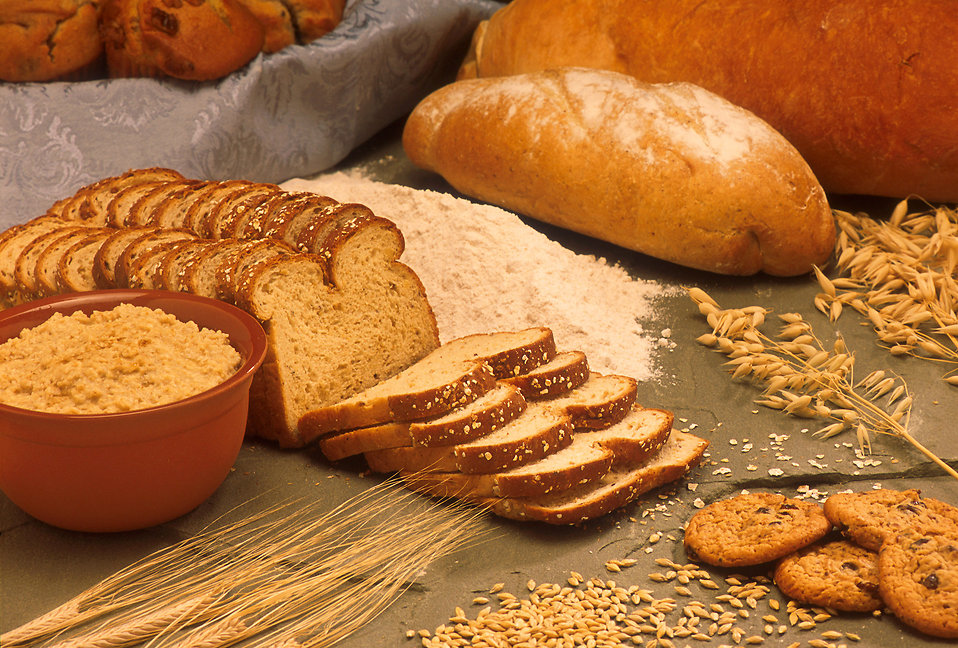
A gluten-free diet isn’t just a fad for most, in fact it is the only option for those who are coeliac and gluten intolerant.
Gluten is a protein found in wheat, barley, rye and triticale, a combination of wheat and rye which helps the likes of cereal, bread and pasta to hold their shape.
It can also found in some products, such as lip balm and in the glue on the back of stamps and envelopes.
It is perfectly healthy for anyone else, but for people with coeliac disease, a gluten intolerance or dermatitis herpetiformis causes serious reactions and damage to the body.
However, today, with numbers of those avoiding gluten rapidly rising and gluten free sales soaring globally, it is apparent that some people are going ‘gluten free’ as if it’s the new diet craze to join in on or a healthier lifestyle to adapt. But this isn’t true.
“People who are sensitive to gluten may feel better, but a larger portion will derive no significant benefit from the practice. They’ll simply waste their money because these products are expensive,” said Dr Leffler, an assistant professor of medicine at Harvard Medical School.
In actual reality, the lifesaving diet is the solution to a disease and not just the ‘new cool eating disorder’, in the words of Jennifer Lawrence.
Results from the National Health and Nutrition Examination Survey (NHANES) 2009-2014 indicated that some 1.76 million people in the U.S. had celiac disease. Meanwhile, the same report estimated that 2.7 million people were following a gluten-free diet without having celiac disease. Why?
“If it isn’t for health reasons, I’m not too sure why anyone would choose to follow a strict gluten-free diet – there are so many delicious gluten-filled foods out there,” said 22-year-old Amy Mulvaney, who was diagnosed with coeliac disease this time last year after months of crippling pain in her stomach and severe bloating.
Likewise, 23-year-old Ollie who suffers from ME/CFS and coeliac disease said, “Trust me I’d love to eat a good slice of ‘normal’ bread if I could.”
Amy, who is a journalist at EVOKE.ie and blogger at WhatSheDoesNow.com, said the biggest drawback for her is cravings, admitting that she struggled not being able to have all the baked goods and regular pasta and pizza at first.
“I gave into my cravings a few times last summer and it was the worst thing I ever did as it gave me a taste of the pie (literally). I found it really hard to get back on track then, but once the pains and swelling began, I realized how important it is for me to follow a strict gluten-free diet,” she said.
Ollie explained that while she is thankful that the availability of GF products in shops helps adopt the lifestyle change, she often feels that those who adopt the GF diet for non-medical reasons often negate the seriousness of illness like ME/CFS and coeliac disease.
“I understand going gluten-free is a very popular trend at the moment, but I would always say to be cautious unless you’ve been diagnosed. Often, ‘free from’ food is packed with lots of sugar and other nasties to make up for the missing gluten – don’t stop yourself from eating wholesome nourishing foods just for the trend,” she said.
Dr. Daniel A. Leffler, who is director of clinical research at the Celiac Center at Beth Israel Deaconess Medical Center in Boston, said in a report “It’s a gigantic burden for those who have to follow it.”
“They get frustrated when they hear how wonderful this diet is,” he continued.
Alexandra, founder of The Gluten Free Suitcase has been gluten-free for seven years now, after suffering from sickness while living in South America.
“I couldn’t have anything to eat without being sick afterwards. I wasn’t absorbing any nutrients, I was drastically slim and my hair was falling out – to list but a few of my symptoms,” she explained.
However, when she returned to the UK and was advised to try avoiding gluten she said that it changed her life.
“I gained weight, my head stopped hurting, my skin cleared up and my social life changed as I no longer was spending most of my evenings unwell. I now have a full, healthy head of hair,” she said.
However, after it was discovered that Alexandra should have been given a test for coeliac after seeing her recovery, she was advised to return to eating gluten for several months in order to carry out the test.
“I flat out refused. No way was I going to put my body through that again to have my diagnosis. I know my body and I know that whatever I have means I am unable to break down gluten,” she said.
“While I don’t know 100 per cent if I am a coeliac or not, I know that I suffer immensely if I consume gluten and so for me eating gluten free is not a choice,” Alexandra explained while expressing caution to those who choose to lead a gluten-free life because they think it is ‘healthier’.
But, for those who suffer from this, it is not trendy. And in some cases such as the controversial post by The White Mouse Café where they issued that customers ordering anything gluten free would have to present proof that they are coeliac, is it is evident that those choosing to go gluten free for no medical reason are damaging the reputation of the coeliac and gluten allergy community and making restaurants more complacent about crucial issues such as cross-contamination.
“I’m always a bit apprehensive when I’m asking if something is gluten-free, as I think there’s a misconception that being gluten-free is just a fad,” Amy admitted.
“For some people it may be a choice, but for many other people – it isn’t,” she said.
Katie Gallagher
Image credit: FreeStockPhotos.biz
